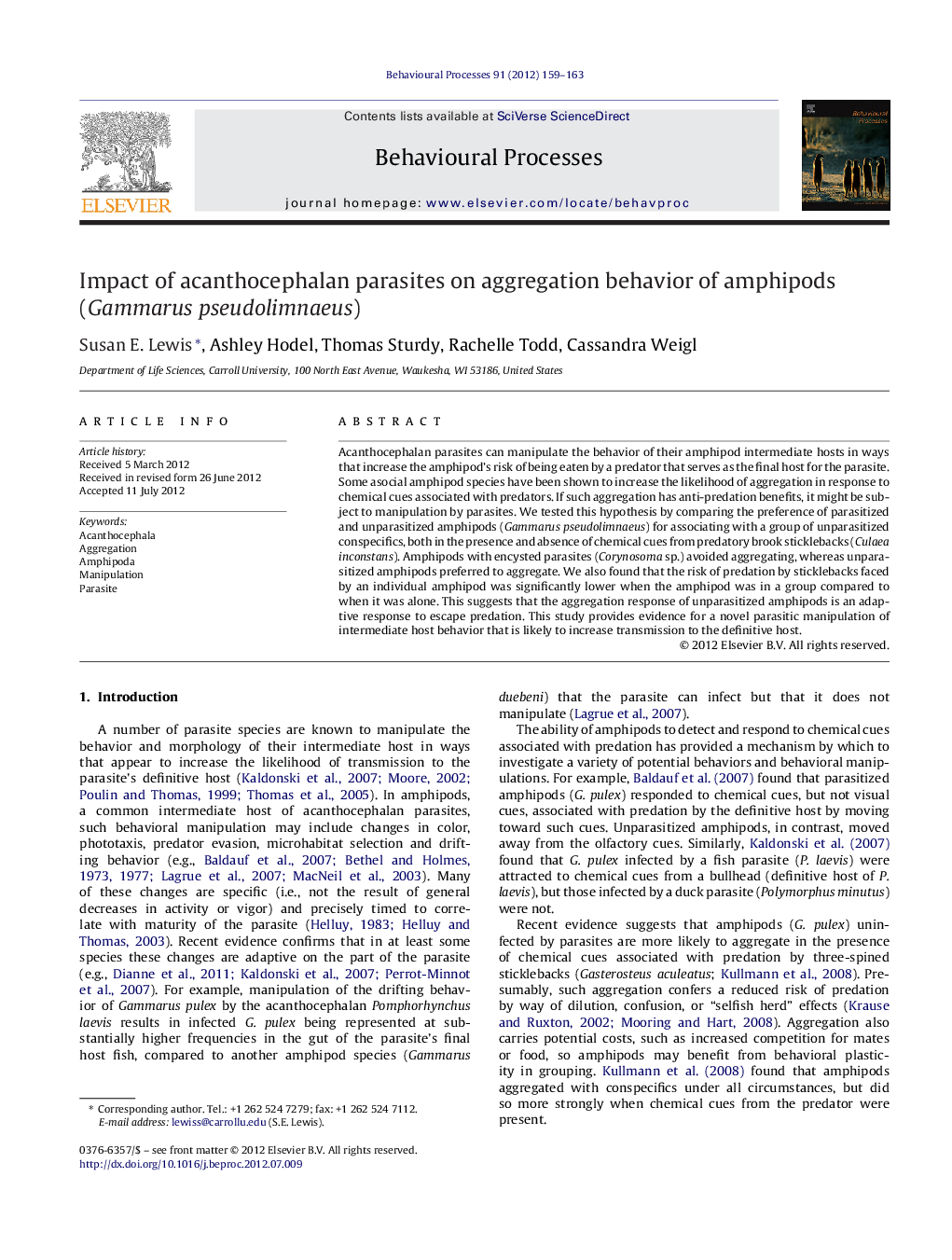| کد مقاله | کد نشریه | سال انتشار | مقاله انگلیسی | نسخه تمام متن |
|---|---|---|---|---|
| 2426989 | 1105936 | 2012 | 5 صفحه PDF | دانلود رایگان |

Acanthocephalan parasites can manipulate the behavior of their amphipod intermediate hosts in ways that increase the amphipod's risk of being eaten by a predator that serves as the final host for the parasite. Some asocial amphipod species have been shown to increase the likelihood of aggregation in response to chemical cues associated with predators. If such aggregation has anti-predation benefits, it might be subject to manipulation by parasites. We tested this hypothesis by comparing the preference of parasitized and unparasitized amphipods (Gammarus pseudolimnaeus) for associating with a group of unparasitized conspecifics, both in the presence and absence of chemical cues from predatory brook sticklebacks (Culaea inconstans). Amphipods with encysted parasites (Corynosoma sp.) avoided aggregating, whereas unparasitized amphipods preferred to aggregate. We also found that the risk of predation by sticklebacks faced by an individual amphipod was significantly lower when the amphipod was in a group compared to when it was alone. This suggests that the aggregation response of unparasitized amphipods is an adaptive response to escape predation. This study provides evidence for a novel parasitic manipulation of intermediate host behavior that is likely to increase transmission to the definitive host.
► Amphipods infected by acanthocephalan parasites aggregated with conspecifics significantly less often than did unparasitized amphipods.
► Parasitized amphipods were also less responsive to chemical cues associated with predation.
► On a per-individual basis, aggregated amphipods faced a lesser risk of predation compared to solitary amphipods.
Journal: Behavioural Processes - Volume 91, Issue 2, October 2012, Pages 159–163